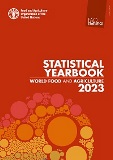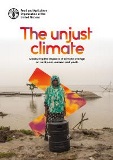Publications
News

Let's celebrate Spanish Language Day!
23/04/2024
Browse through the wealth of FAO publications in Spanish!

Celebrating Chinese Language Day
19/04/2024
Browse through the wealth of FAO publications in Chinese!
Featured publications


About FAO publishingFAO flagship publications
Newsletter sign-upSee the latest issue
Other resources
Join the conversation


